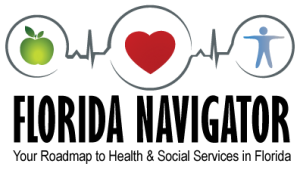The Savvy Senior
By Robert Goodman, MSW
The Birds and the Bees
Several years ago a friend decided to start dating after the death of her husband. Before she started dating again I told her I wanted to talk to her about something. She said “You’re not going to talk to me about the birds and the bees are you?” I said I was and proceeded to talk about sexually transmitted diseases, including HIV and AIDS. She was shocked by both my bringing up the subject and by the statistics. But this is a conversation that everyone must have.
The availability of erectile dysfunction medications has resulted in increased sexual activity among the elderly. Older adults continue to be sexually active. They also are less likely to use protection because pregnancy is not an issue after menopause. The Centers for Disease Control explains that seniors might be less knowledgeable about HIV/AIDS and therefore less likely to protect themselves with condoms or seek testing.
Heterosexual adults over age 50 account for an increasing proportion of persons living with HIV/AIDS. Statistics compiled by the New York City Department of Aging (DFTA) report that 14% of all reported HIV/AIDS cases in the United States in 2004 were among people over age 50. The HIV/AIDS issue has moved from a problem in the gay and white communities to a problem faced by minorities and the elderly. In 2003, 52% of older Americans living with HIV/AIDS were either Black or Hispanic. In addition, people who were diagnosed with HIV/AIDS at a younger age are living longer as a result of new medications.
The NYCDFTA also found that:
Older adults who are exposed to HIV are at greater risk than younger people because of weakened immune systems.
Health providers may not screen older adults for sexually
transmitted diseases because of lack of training or ageist attitudes.
Older adults are not diagnosed properly as having HIV/AIDS
because many of the symptoms resemble the symptoms of old age.
In 2009, nearly 20 percent of all new HIV and 25 percent of all AIDS diagnoses in Florida were in those older than 50. More than half of the cases were among those who live in South Florida, according to the Broward County Health Department.
Some state projections say that the majority of people with the disease will be seniors by the year 2015.
Susan Mintz has been aware of this subject for 30 years since her husband was diagnosed with HIV. She explains that the baby boomers who are now aging live with a 60s mentality that we are as invincible now as when we were teenagers. She states “ that we are now playing Russian roulette with a loaded gun.” Many baby boomers continue to use drugs and are increasingly exposed to this disease as they start dating after the loss of a spouse.
Educating older adults about HIV/AIDS has become her passion and priority. Her goal is to prevent the spread of this disease. She facilitates a support group to educate older adults about sexually transmitted diseases in our clubhouse in her quest to reach this goal. “We need to talk about it.” She explains, “this issue is not necessarily about you, but about the ones around you. We need to be concerned about our friends, acquaintances, and family members.”
The HIV/AIDS support group, which she calls “I love my life” meets on the first Monday of each month in Room G in the clubhouse at 4 PM. To learn more about the support group contact Susan at 561.271.1879.
You can also learn more about her experience with HIV/AIDS by visiting her website: www.susanmintz.com. For more information on STDs and older adults log onto www.cdcnpin.org/scripts/population/elderly.asp


